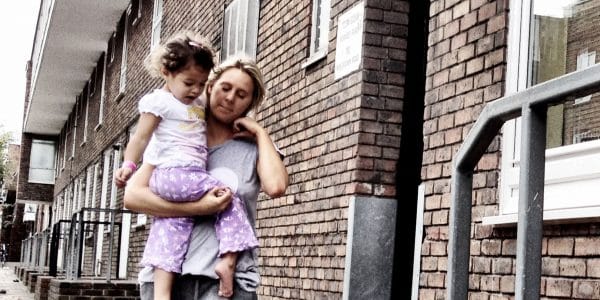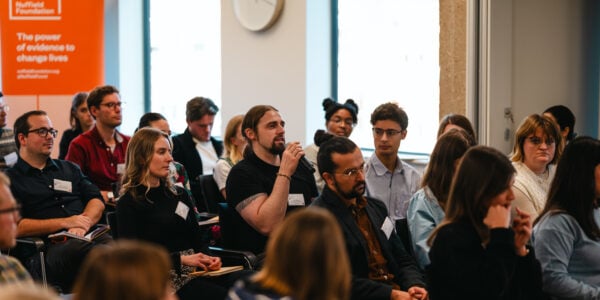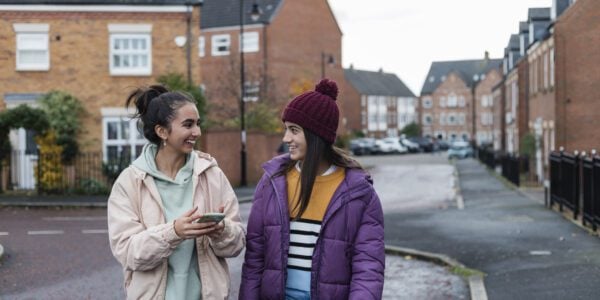
05/01/21
3 min read
When the IFS Deaton Review of Inequalities — funded by the Nuffield Foundation — was launched 18 months ago, the Review’s chair, Nobel Laureate Sir Angus Deaton, raised the possibility that pervasive inequalities might threaten our economic, social and political systems. Today, new analysis from the Review shows that many inequalities grew over 2020 as a result of the COVID-19 pandemic, and that this is likely to continue unless action is taken.
Key findings
We are not all in this together when it comes to our health. Mortality rates from COVID-19 have been around twice as high in the most deprived communities as in the least deprived. In addition, many ethnic minority groups have suffered much higher rates of mortality than the white majority. That in part reflects their occupations. More than two in ten black African working-age women are employed in health and social care, for example.
We are not all in this together when it comes to our livelihoods. The best-paid and most highly educated have been much better able to ride out the crisis. Compared with pre-pandemic levels, by the third quarter of 2020 there had been a 7% reduction in the number of graduates doing any hours of paid work, but a 17% reduction in the number of non-graduates doing any hours of paid work. (These reductions include furloughed employees doing zero hours of work.) The number of self-employed jobs has fallen by nearly 10%.
We are not all in this together when it comes to our education. Children from poorer families found it harder to do schoolwork during lockdown and got less online teaching. They have also been more likely to miss school since September. Those attending private schools got far more interaction with teachers than others in the spring and summer.
Financially speaking, the young and the old are not in this together. While the impact on health and mortality has been far greater among the older generation, it is the younger generation which has felt the economic consequences of the pandemic. More pensioners report an improvement in their financial situation than the reverse over 2020. Meanwhile, people under 25 were more than twice as likely as older workers to have lost their job by the autumn.
The IFS sets out a set of challenges which need to be addressed
Targeted support to school children who have fallen behind is required to prevent the already huge educational inequalities by social class becoming even greater.
Welfare and tax policies to support and integrate the self-employed and those in insecure work must be adapted. The failure of the Self-Employment Income Support Scheme to provide support to so many people who lost out from the pandemic (while overcompensating many others) is a stark illustration of how far we have to go in effectively including these groups within the safety net.
School and university leavers and young workers especially must be supported in finding jobs and training. Otherwise we risk a generation that will be permanently scarred by the crisis.
With monetary policy likely to remain loose, thereby boosting asset prices and the relative position of the older and wealthier, we need fiscal policy to do more to support the young and those without wealth.
The multiple social and economic causes of poor health need to be recognised and addressed. Being associated with, and resulting from, so many other forms of disadvantage, progress in reducing poor mental and physical health would be perhaps one of the clearest indications of success of economic and social policy.
More needs to be done to ensure greater economic opportunities for minority ethnic groups, and ensure that they are not consigned to low-paid and self-employed occupations. They would benefit disproportionately from policies that, for example, provided greater security for the self-employed and others in insecure work, improved pay and conditions in health and social care, and supported progress through the labour market.
As the vaccines should, at some point this year, take us into a world largely free of the pandemic, it is imperative to think about policies that will be needed to repair the damage and that focus on those who have suffered the most. We need to build a country in which everyone feels that they belong.Sir Angus Deaton, Chair of the IFS-Deaton Review of Inequalities
People are subject to a wide range of potential vulnerabilities around dimensions including age, ethnicity, place of birth, education, income and the nature of their employment. Where these vulnerabilities intersect, they can amplify and reinforce one another and play a huge role in driving unequal outcomes. As we enter a vital year, the IFS Deaton Review of Inequalities is playing an important role in demonstrating how the pandemic has ruthlessly exposed such existing inequalities and also exacerbated them.Mark Franks, Director of Welfare at the Nuffield Foundation















































